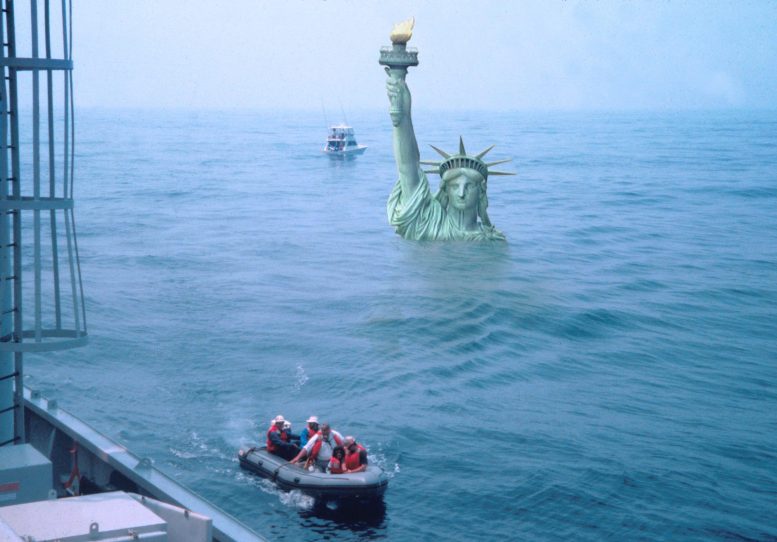
Scientists boarding the D/V JOIDES Resolution off New Jersey in 1993. The sea level in an ice-free world would be 66 meters (216.5 feet) higher than now — shoulder-high to the Statue of Liberty. Credit: Kenneth G. Miller, James V. Browning, and Gregory S. Mountain.
Surprising glacial and nearly ice-free periods in last 66 million years.
New research by Rutgers scientists reaffirms that modern sea-level rise is linked to human activities and not to changes in Earth’s orbit.
Surprisingly, the Earth had nearly ice-free conditions with carbon dioxide levels not much higher than today, and had glacial periods in times previously believed to be ice-free over the last 66 million years, according to a paper published in the journal Science Advances.
“Our team showed that the Earth’s history of glaciation was more complex than previously thought,” said lead author Kenneth G. Miller, a Distinguished Professor in the Department of Earth and Planetary Sciences in the School of Arts and Sciences at Rutgers University-New Brunswick. “Although carbon dioxide levels had an important influence on ice-free periods, minor variations in the Earth’s orbit were the dominant factor in terms of ice volume and sea-level changes — until modern times.”
Sea-level rise, which has accelerated in recent decades, threatens to permanently inundate densely populated coastal cities and communities, other low-lying lands, and costly infrastructure by 2100. It also poses a grave threat to many ecosystems and economies.
The paper reconstructed the history of sea levels and glaciation since the age of the dinosaurs ended. Scientists compared estimates of the global average sea level, based on deep-sea geochemistry data, with continental margin records. Continental margins, which include the relatively shallow ocean waters over a continental shelf, can extend hundreds of miles from the coast.
The study showed that periods of nearly ice-free conditions, such as 17 million to 13 million years ago, occurred when the concentration of atmospheric carbon dioxide — a key greenhouse gas driving climate change — was not much higher than today. However, glacial periods occurred when the Earth was previously thought to be ice-free, such as from 48 million to 34 million years ago.
“We demonstrate that although atmospheric carbon dioxide had an important influence on ice-free periods on Earth, ice volume and sea-level changes prior to human influences were linked primarily to minor variations in the Earth’s orbit and distance from the sun,” Miller said.
The largest sea-level decline took place during the last glacial period about 20,000 years ago, when the water level dropped by about 400 feet (120 meters). That was followed by a foot (0.3 meters) per decade rise in sea level — a rapid pace that slowed from 10,000 to 2,000 years ago. Sea-level rise was then at a standstill until around 1900, when rates began rising as human activities began influencing the climate.
Future work reconstructing the history of sea-level changes before 48 million years ago is needed to determine the times when the Earth was entirely ice-free, the role of atmospheric carbon dioxide in glaciation, and the cause of the natural fall in atmospheric carbon dioxide before humans.
Reference: “Cenozoic sea-level and cryospheric evolution from deep-sea geochemical and continental margin records” by Kenneth G. Miller, James V. Browning, W. John Schmelz, Robert E. Kopp, Gregory S. Mountain and James D. Wright, 15 May 2020, Science Advances.
DOI: 10.1126/sciadv.aaz1346
Rutgers coauthors include Professor James V. Browning, doctoral student W. John Schmelz and professors Robert E. Kopp, Gregory S. Mountain and James D. Wright, the senior author of the study.

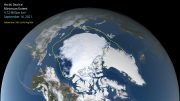
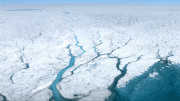
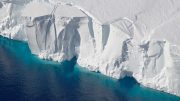
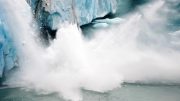
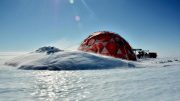
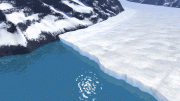

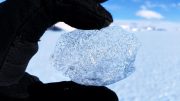
The Earth’s orbit is but one player in sea level rise and fall. Our Sun is and will remain the major player. Humanity’s influence has allways been a very small player, but one that is growing almost expotentially; however, during fairly stable stellar periods (such as the one we are in right now) our influence can seem predominant.
The sun is a minor player over short to intermediate terms because of the relative constancy of its output. During “fairly stable stellar periods (..the one we are in right now)” our influence IS predominant; kind of what the study was about…
oh gee, another “scientific” study stating “HUMANS MUST BE SESTROYED!!!” to save the planet….
Human beings are arrogant and stupid idiots, before anything conclusive could be stated way more information is required.
All you have to do is look at an old textbook from 50 years ago to determine how little we knew then. The more information we get raises thousands more questions.
You put ice in your pop, it melts, it doesn’t rise the level of fluid. I’ve learned that in the 5th grade.
Thanks for sharing.
Sea level has been a rising 15 to 20 centimetres per century for the past seven thousand years and faster before that.
I looked at the source paper. Very dense stuff, but it never actually stated that man-made increases in CO2 concentration is responsible for the latest increase. In fact, the CO2 levels have been much higher with less impact on sea levels. Also, error bars on the data are huge, making it difficult to see how they’re seeing significant impact in mm size changes in sea level.
Sea-level rise was then at a standstill until around 1900, when rates began rising as human activities began influencing the climate.
Sea level has been rising at nearly the same rate since we first started to record it early in the 19th century. Look up the tide gauge in Brest, France.
Steve Case – Milwaukee, WI
Humans are largely ignorant of various matters. I don’t know if it’s deliberate or just schooling geared towards employability and the news being local issues rather than world issues. Unless they’ve directly experienced something they don’t quite believe it. Things as simple as being in a burning building. After you been in one, fire safety becomes a big deal but until then it’s a nuiscence. This is the same problem on an immense scale.
We should be designing cities so commuting is unnecessary and reducing waste and pollution. Tangible things!
Yeah more global fear porn from the globalist cabal – all so very keen to get us at each other’s throats… while injecting experimental gene therapy to reduce the population of the planet (never their own related population though – just the others) and heading towards Nuremberg Code 20 with each and every passing day… Tick Tock Tick Tock…